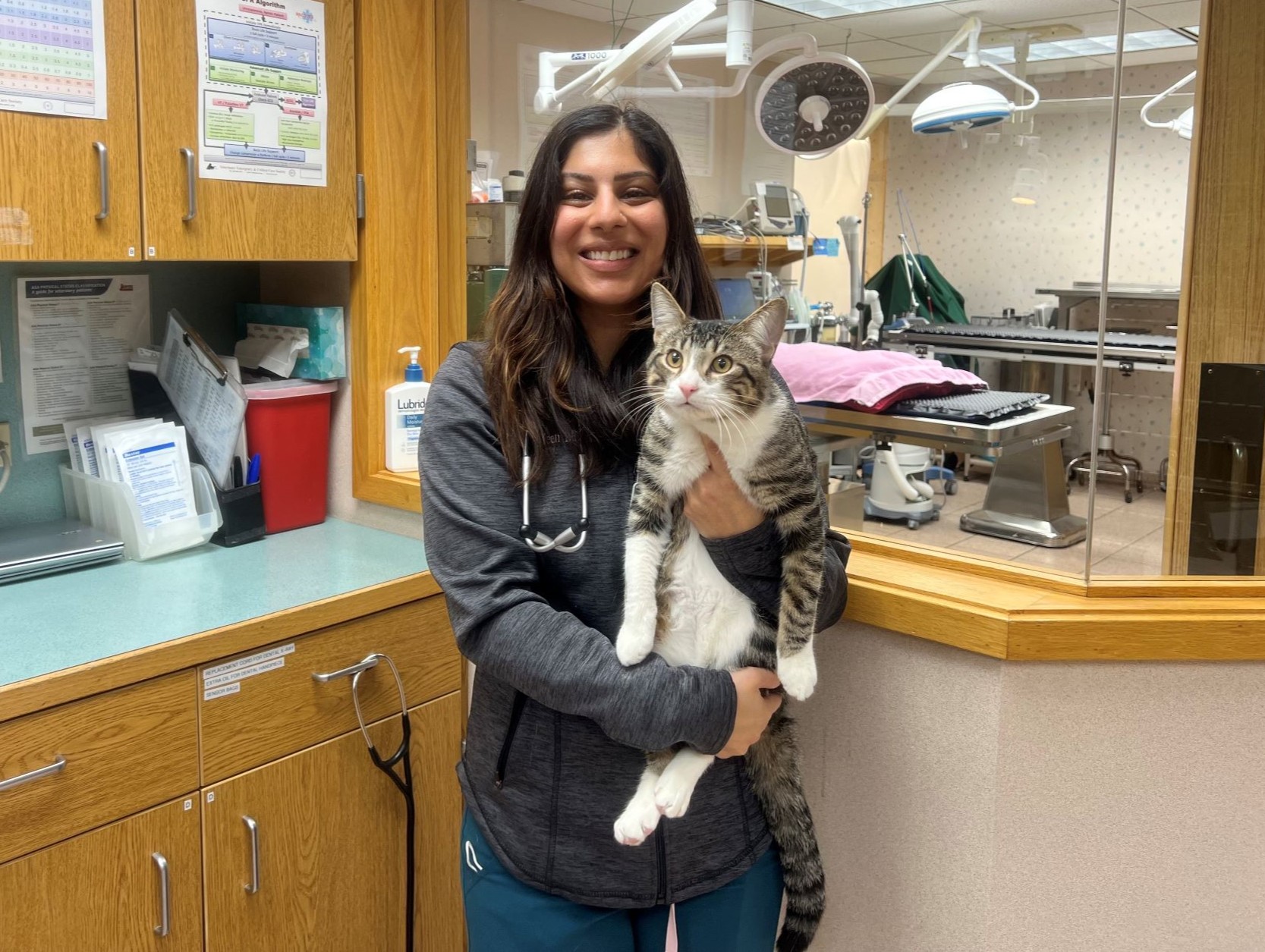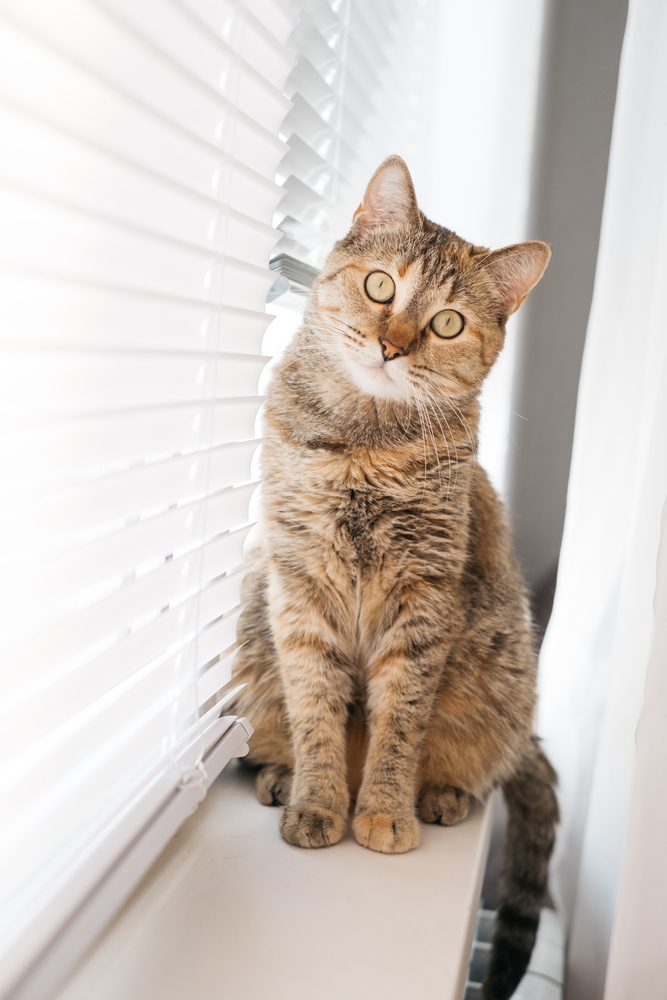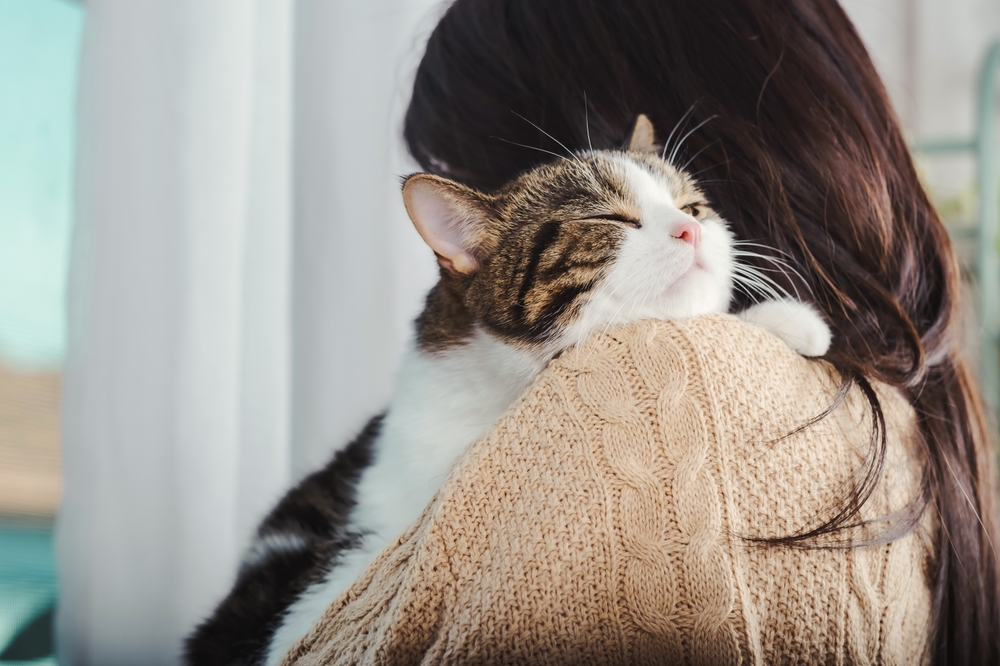
Cat Vomiting: Causes, Types, and Treatments
Vomiting in cats can be a perplexing and concerning issue for pet owners. Dr. Dhaliwal, a veterinarian here at Cascade Hospital for Animals, offers her professional advice, emphasizing the importance of understanding the various types of vomiting, potential causes, and available treatments to help pet owners gauge when to act and seek veterinary assistance.
"I've seen countless cases of feline vomiting," says Dr. Dhaliwal. "Each situation is unique, and context is key to understanding what's happening with your cat's health."
 When to Be Concerned About Cat Vomiting
When to Be Concerned About Cat Vomiting
Cats can be notoriously difficult when it comes to understanding their health. While vomiting can be a common occurrence, knowing when it is time to be concerned is critical for your feline's well-being. This article outlines the various circumstances surrounding cat vomiting and highlights when you should seek veterinary care.
Understanding Voiding Behavior
Cats may vomit for a variety of reasons. However, not all vomiting should be cause for alarm. Here are some scenarios to consider:
- Occasional Vomiting
If your cat vomits once or twice and seems otherwise healthy, it may not be a cause for concern. Occasional vomiting can result from hairballs, dietary indiscretions, or eating too quickly.
“During the holiday season, we see a significant uptick in vomiting cases related to cats getting into gift wrap ribbons and decorations," warns Dr. Dhaliwal. "Cats are naturally curious, and these shiny, stringy items are incredibly tempting. This time of year, cats will often find a piece of gift wrap ribbon, so be sure to watch while wrapping presents and clean up all strings and decorations well.
Monitor your cat's behavior and general health, and keep an eye out for frequency. - Chronic Vomiting
If your cat vomits more than a few times a week, this can be a red flag. Chronic vomiting can indicate underlying health issues such as kidney disease, hyperthyroidism, or gastrointestinal problems. In such cases, it's essential to consult your veterinarian. - Bile-Induced Vomiting
Vomiting that produces yellow or green liquid often means bile is present, usually because the stomach is empty. While occasional bile vomiting can be normal, consistent incidents should prompt a veterinarian visit to rule out digestive issues. - Food-Related Vomiting
If you've recently changed your cat’s food or introduced new treats, keep track of any weight changes or vomiting. Food intolerances or allergies can manifest as vomiting, and it may require an elimination diet or further consultation with your vet. - Hairball Vomiting
Cats, particularly long-haired breeds, groom themselves extensively and swallow hair. Occasionally spitting up a hairball is common; however, frequent vomiting of hairballs that causes distress suggests a larger issue, such as gastrointestinal obstructions.
If your cat is vomiting because of hairballs, try switching their food to one with a hairball formula. Cat food with hairball formula helps prevent hairballs from forming by breaking them down with specific enzymes. - Projectile Vomiting
Projectile vomiting is characterized by the forceful expulsion of stomach contents. This can indicate severe problems, like gastrointestinal blockages, and requires immediate veterinary attention. - Vomiting with Other Symptoms
If your cat is vomiting and also shows additional symptoms, such as diarrhea, lethargy, significant weight loss, or a change in appetite, contact your veterinarian immediately. These combinations can signify serious health concerns that need prompt evaluation.
Causes of Vomiting
Understanding the potential causes of vomiting in cats is crucial for pinpointing when you should be concerned. Here are some common factors that may lead to vomiting:
- Dietary Indiscretion: Cats are naturally curious creatures and may consume something that doesn’t sit well with their stomachs. This could include spoiled food, plants that are toxic to cats, or even foreign objects.
- Food Intolerance or Allergies: Some cats may have intolerances or allergies to specific ingredients in their food, which can lead to gastrointestinal upset and vomiting. This is particularly common when transitioning to new foods.
- Gastrointestinal Conditions: Various gastrointestinal issues, such as inflammatory bowel disease (IBD), gastritis, or gastric ulcers, can cause persistent vomiting. Regular vomiting can be a sign of irritation or inflammation in the digestive tract that needs treatment.
- Parasites: Intestinal parasites, such as worms, can lead to vomiting due to their irritative effects on the gastrointestinal system. If your cat is not on regular anti-parasitic medication, it may be worth discussing with your vet.
- Infections: Bacterial, viral, or fungal infections can also cause vomiting. Infections can impact the gastrointestinal tract and are often accompanied by other symptoms such as fever, lethargy, or dehydration. If your cat shows signs of an infection, it is essential to seek veterinary care.
- Kidney and Liver Disease: These crucial organs play vital roles in your cat's metabolism and waste elimination. Diseases affecting the kidneys or liver can lead to toxin build-up in the body, prompting vomiting. Signs to look out for include increased thirst or urination, jaundice (yellowing of the skin or eyes), and a decrease in appetite.
- Hyperthyroidism: This condition, which is more common in older cats, results from an overproduction of thyroid hormones. Symptoms include increased appetite, weight loss, and vomiting. If your cat fits this profile, a veterinary consultation is necessary.
- Medications: Certain medications may cause side effects that include vomiting. If your cat has recently started a new medication or changed dosages, consult your veterinarian to assess whether the medication could be the culprit.
- Stress and Anxiety: Cats are sensitive to changes in their environment. Stress due to moving, new pets, changes in family dynamics, or other factors can lead to vomiting as a physical manifestation of their discomfort. Creating a calm, stable environment can help alleviate stress-related vomiting.
When to Seek Veterinary Care
While occasional vomiting may not necessarily be a cause for alarm, Dr. Dhaliwal says there are specific signs that indicate a need for prompt veterinary attention. Recognizing these signs can be crucial for ensuring your cat's health and well-being.
- Frequent or Persistent Vomiting
If your cat vomits more than once a week or experiences persistent vomiting over a span of days, this is a red flag. Frequent vomiting may indicate an underlying issue that requires investigation. - Presence of Blood
Blood in vomit, whether it appears as bright red blood or dark "coffee grounds" (digested blood), is a serious concern. This could indicate internal bleeding or severe gastrointestinal distress. If you observe blood in your cat's vomit, seek veterinary care immediately. - Dehydration
Dehydration can occur quickly in cats that are vomiting frequently. Signs of dehydration include dry gums, lethargy, and a decrease in skin elasticity (the skin does not return quickly to its normal position when pulled up gently). If you suspect dehydration, it’s essential to consult your veterinarian. - Changes in Behavior
If your cat shows significant behavioral changes, such as increased lethargy, disinterest in food or water, or hiding, these may signal a more severe underlying health issue. A sudden change in behavior warrants a visit to the veterinarian. - Accompanying Symptoms
Look out for other symptoms that accompany vomiting, such as diarrhea, weight loss, or abdominal pain. These signs can provide important clues about the underlying cause of the vomiting and should be discussed with your vet.

Understanding when to be concerned about your cat's vomiting is crucial for maintaining their health. Occasional vomiting can be a normal part of a cat's life, often related to hairballs or dietary indiscretions. However, if vomiting becomes frequent, is accompanied by other worrisome symptoms, or presents serious signs like dehydration or blood, it's imperative to seek professional veterinary advice.
At Cascade Hospital for Animals and Breton Village Animal Clinic, we are dedicated to providing comprehensive veterinary care for pets throughout Ada, Cascade, Forest Hills, and the entire Grand Rapids area in West Michigan. When in doubt or any time you have questions about your cat being sick, call our office. Our experienced team is committed to helping you ensure your feline friend remains healthy and happy. By being observant and proactive, you can work together with our veterinarians to address your cat's health concerns and provide the best possible care.



